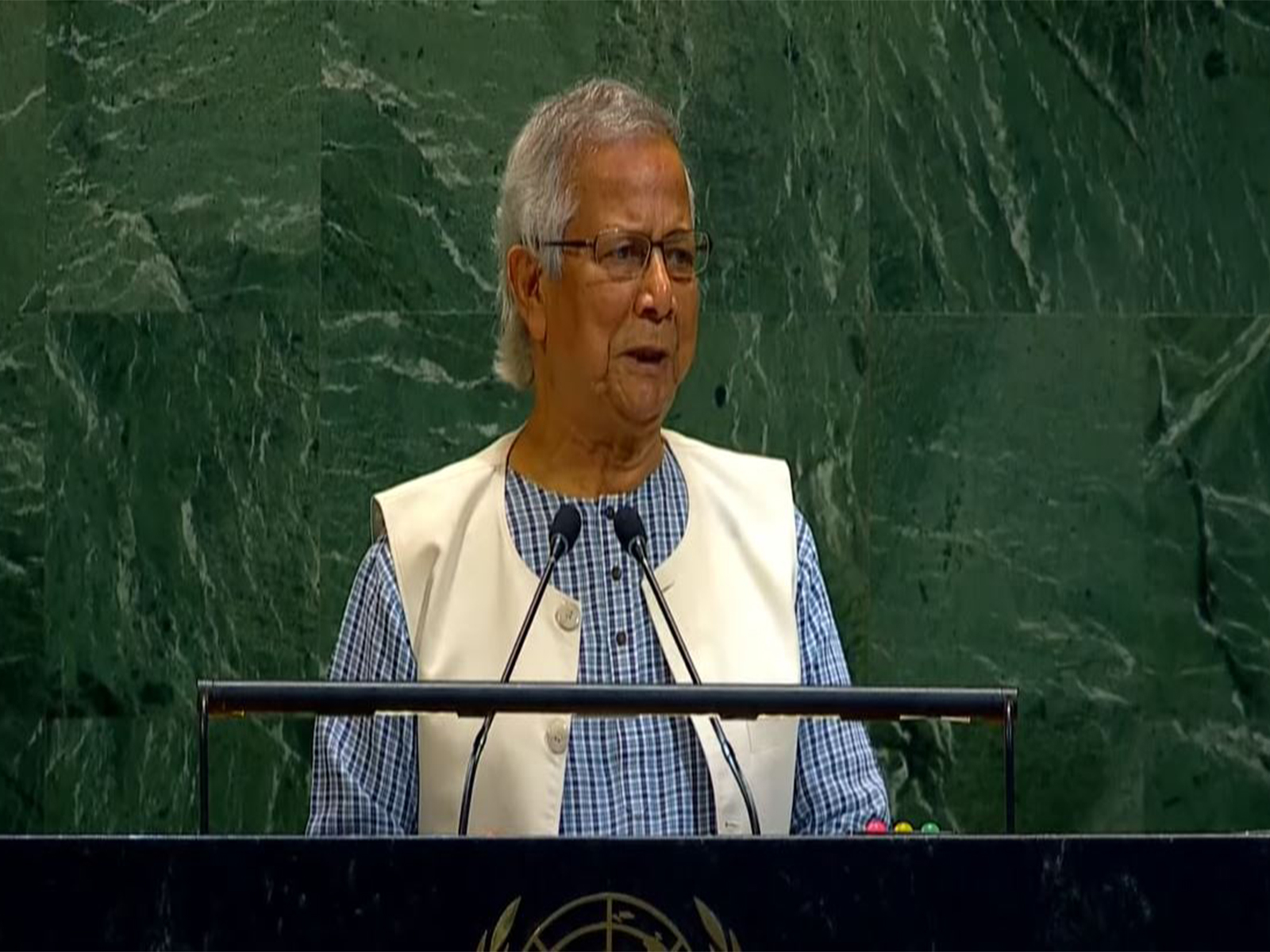
New York [US], September 26 (ANI): Bangladesh’s interim Chief Adviser Muhammad Yunus addressed the fourth day of the 80th United Nations General Assembly (UNGA) on Friday, marking his second speech at the world body since the Gen Z-led uprising toppled Sheikh Hasina’s 15-year rule last year.
Protests outside the UN accompanied his arrival, with supporters of former Prime Minister Sheikh Hasina demonstrating against the interim leader. Yunus, whose government has been in power since the unrest, is steering the country until the general elections expected next year.

Supporters of former Bangladesh Prime Minister Sheikh Hasina have been holding protests outside the United Nations Headquarters in New York, voicing their opposition to current interim leader Muhammad Yunus.
These demonstrations reflect the ongoing political turmoil in Bangladesh, with protesters questioning Yunus’s legitimacy and expressing concerns over human rights and minority persecution.
Critics accuse Yunus’s government of allowing attacks on minorities, especially Hindus, with some linking this to radical Islamist groups like Jamaat-e-Islami.
Notably, Yunus blamed India for hosting Hasina, straining bilateral relations; India had previously expressed concerns about minority safety in Bangladesh. Yunus linked Hasina’s rule to student protests and unrest, seeking extradition for alleged crimes.
Reflecting on Bangladesh’s political transformation, Yunus told delegates, “Last year, in this august assembly, I spoke to you from a country that had just witnessed a popular uprising. I shared with you our aspirations for transformation. Today, I stand here to tell you how far we have come on that journey. Out of every 100 people on this planet, nearly three live in Bangladesh.”
He said Bangladesh’s significance did not lie in its numbers or geography but in the resilience of its people. “Our story matters because it is a reminder of the extraordinary power of ordinary people. It matters because it inspires hope among nations everywhere, that no matter how deep the crisis, no matter how impossible the solution may seem, the path to renewal is never lost,” he added.
Turning to the economy, Yunus highlighted the role of migrant workers. According to the International Organisation for Migration, 7.1 million Bangladeshis live abroad, contributing about USD 18 billion in remittances in 2019.
“Their contribution is not only vital for Bangladesh, but it is equally valuable for host countries where they provide essential services in high demand. Migration is therefore mutually beneficial: good for us, good for them,” he said, urging host nations to “ensure empathy and protection.”
The interim leader also aligned Bangladesh with the findings of a UN human rights commission on Gaza. “We do agree with the UN independent international inquiry commission that we are witnessing a genocide happening live,” he said. “Unfortunately, on behalf of humanity, we are not doing enough to stop it. If this continues, neither future generations nor history will forgive us.”
He further voiced alarm over Myanmar’s protracted crisis. “The ongoing conflict in our neighbouring country, Myanmar, has created a situation of deep concern for the entire region,” Yunus said, stressing that persecution of the Rohingya continued in Rakhine State. He called for a political settlement with all ethnic stakeholders, ensuring the Rohingya are integrated “with equal rights as equal citizens.”
Yunus warned that international aid for Rohingya refugees was dwindling. Citing the World Food Programme, he said, “Without urgent new funding, monthly rations may have to be halved to a paltry $6 per person,” which could exacerbate hunger, malnutrition and desperation.
Concluding his speech, Yunus underscored the interconnected nature of crises worldwide. “We must remember that the challenges ahead cannot be made by any single country alone, and we must also remember that in today’s world where one nation falls into crisis. When crisis erupts in one corner of the globe, the security of the whole world is put at risk,” he said. (ANI)
The article has been published through a syndicated feed. Except for the headline, the content has been published verbatim. Liability lies with original publisher.






